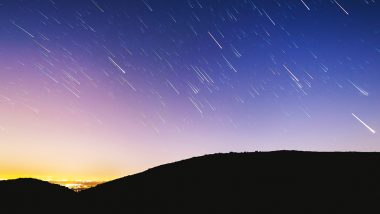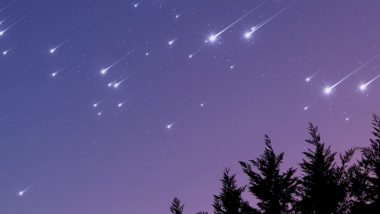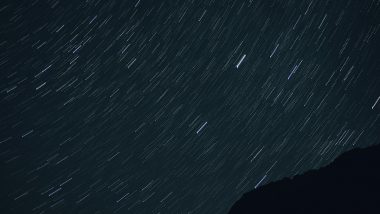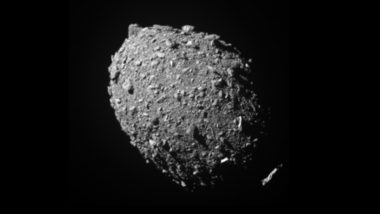Several people are interested in stargazing, especially in places where stars can be seen. However, there are very few locations on Earth where a person can stargaze owing to the vast infrastructure expansion. Soon, you’ll be able to witness what is known as a shooting star – a space rock that is descending towards the Earth. As per NASA, the rock is surrounded by hot air that transforms into glowing hot air. When the Earth encounters these rocks, they are known as ‘meteor showers.’ This month, astronomers and stargazers will observe double meteor shower, namely Delta Aquariids and Alpha Capricornids meteor showers, the celestial event that captivates stargazers worldwide. In 2024, this spectacular shower is set to peak on the night of July 30, promising a mesmerizing display of shooting stars across the night sky. In this article, you’ll get a detailed idea of what Delta Aquariids and Alpha Capricornids are, when and where to watch them, and tips.
Delta Aquariids
The Delta Aquariids, originating from the comet 96P/Machholz, will peak on the night of July 30. Known for producing up to 20 meteors per hour, they are most visible in the Southern Hemisphere but can also be observed from southern latitudes of the Northern Hemisphere. These meteors are characterized by their faint, long streaks of light, often moving swiftly across the sky.
Alpha Capricornids
Simultaneously, the Alpha Capricornids will also be peaking. This meteor shower is known for producing bright fireballs that move slowly across the sky, providing a stark contrast to the swifter Delta Aquariids. Although it has a lower meteor count, typically around five meteors per hour, the brilliance of the Alpha Capricornids makes them a highlight of the night.
Delta Aquariids Meteor Shower 2024 Date and Time: When and Where to Watch
The Southern Delta Aquariid meteor shower is active from July 18 through August 21, with its highest peak on July 29 and July 30. This coincides with a second, smaller meteor shower, the Alpha Capricornids. The Alpha Capricornids are active from July 7 through August 15, with a "plateau-like" peak on July 31.
For observers in India, the best time to watch the meteor showers is after midnight, when the skies are darkest, and the radiant points of both showers are higher in the sky. While the Delta Aquariids will appear to radiate from the constellation Aquarius, the Alpha Capricornids will originate from the constellation Capricornus. Together, these showers will create a celestial spectacle that is rare and breathtaking.
The Delta Aquariids are best observed from the Southern Hemisphere and southern latitudes of the Northern Hemisphere. Countries such as Australia, New Zealand, South Africa, and parts of South America offer prime viewing locations. In the Northern Hemisphere, stargazers in southern states of the USA and regions closer to the equator will have better chances of seeing the meteors.
Tips for a Successful Shooting Stars' Viewing Experience
- Arrive Early: Give your eyes at least 20-30 minutes to adjust to the dark. This adjustment period will significantly improve your ability to see faint meteors.
- Be Patient: Meteor showers can be unpredictable. Allow yourself plenty of time to enjoy the experience, as meteors can come in sporadic bursts.
- Stay Warm: Even in the summer, nighttime temperatures can drop, especially in open fields or elevated areas. Bring warm clothing or blankets to stay comfortable.
- Check the Weather: Clear skies are essential for a good viewing experience. Check the local weather forecast and plan accordingly to find the best night for viewing.
The double meteor shower on July 29 and July 30, 2024, offers a rare opportunity for stargazers to witness a stunning display of celestial fireworks. The combination of the Delta Aquariids’ swift meteors and the Alpha Capricornids’ bright fireballs promises an unforgettable night under the stars. Whether you're an avid astronomer or simply looking to enjoy the beauty of the night sky, this event is not to be missed. Prepare your viewing spot, check the weather, and prepare for a mesmerizing experience that celebrates the wonders of our universe.
(The above story first appeared on LatestLY on Jul 29, 2024 04:08 PM IST. For more news and updates on politics, world, sports, entertainment and lifestyle, log on to our website latestly.com).













 Quickly
Quickly














 GT
GT







